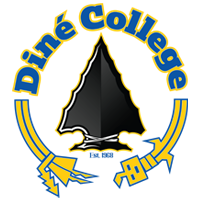AGENDA
June 23 – 24
9am – 2pm MDT
THURSDAY, June 23
All times in Mountain Daylight Time.
| 9:00 – 9:30am | Welcome President Roessel; Avery Denny |
| 9:30 – 10:20am | Speaker 1 Dr. Lloyd Lee, Professor of Native American Studies, University of New Mexico [sg_popup id=”17875″ event=”click”]Diné Nishłį́: Writing from a Navajo Matrix[/sg_popup] |
| 10:20 – 10:30am | Break |
| 10:30 – 11:20am | Speaker 1 Dr. Lloyd Lee (continued) |
| 11:20 – 11:30am | Break |
| 11:30am – 12:20pm | Speaker 2 Dr. Christie Toth, Assistant Professor of Writing and Rhetoric Studies, University of Utah [sg_popup id=”17877″ event=”click”]Teaching Writing at Open Admissions Colleges: Four Post-Pandemic Conversations[/sg_popup] |
| 12:30 – 1:00pm | Lunch Break |
| 1:00 – 1:50pm | Speaker 3 Dr. Resa Crane Bizzaro, Associate Professor of English, Indiana University of Pennsylvania [sg_popup id=”18044″ event=”click”]Still Sacred or Running Scared: Teaching Online Research Writing During a Pandemic Using a Cultural Approach[/sg_popup] |
| 2:00pm | Closing remarks; reminder of Friday’s agenda |
FRIDAY, June 24
All times in Mountain Daylight Time.
| 9:00 – 9:30am | Welcome |
| 9:30 – 10:20am | Speaker 4 Dr. Kimberly Wieser, Associate Professor of English, University of Oklahoma [sg_popup id=”17879″ event=”click”]Teaching Writing to Native Students in Yet Another Worst Semester Ever: How We Thrived and Overcame[/sg_popup] |
| 10:20 – 10:30am | Break |
| 10:30 – 11:20am | Speaker 4 Dr. Wieser (continued) |
| 11:20 – 11:30am | Break |
| 11:30am – 12:20pm | Speaker 5 Dr. Daniel Cole, Associate Professor of Writing Studies and Rhetoric, Hofstra University [sg_popup id=”17881″ event=”click”]Remotely Related: Covid, Conflict, Connectiveness, and Composition[/sg_popup] |
| 12:30 – 1:00pm | Lunch Break |
| 1:00 – 1:50pm | Speaker 6 Velma Hale, Instructor, Diné College [sg_popup id=”17883″ event=”click”]Writing During the Pandemic[/sg_popup] |
| 2:00pm | Closing remarks; end of conference |
